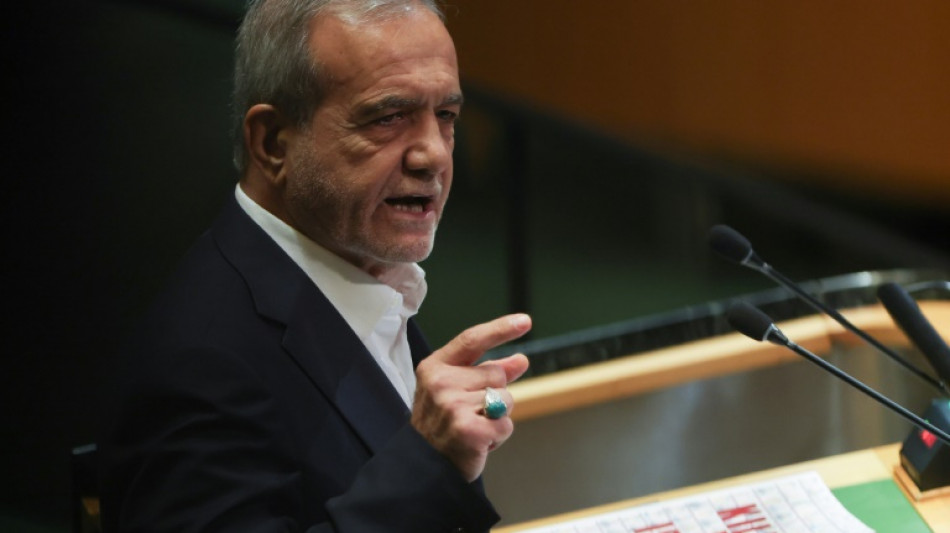
-
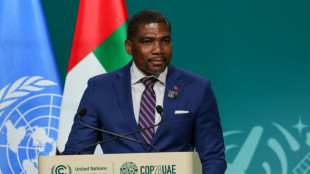 Con job? Climate change is my job, says island nation leader
Con job? Climate change is my job, says island nation leader
-
US stocks fall again while Alibaba gains on big AI push

-
 Forest denied winning European return by Antony, Roma down Nice
Forest denied winning European return by Antony, Roma down Nice
-
Postecoglou's Forest held by Antony's Betis on European return
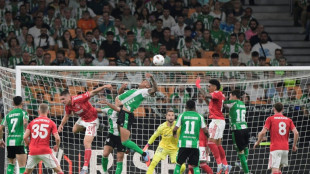
-
 Eze nets first goal as Arsenal join Man City in League Cup last 16
Eze nets first goal as Arsenal join Man City in League Cup last 16
-
Guardians' Fry has facial fractures after taking fastball to face

-
 Giants to go with rookie QB Dart, bench NFL veteran Wilson
Giants to go with rookie QB Dart, bench NFL veteran Wilson
-
Police clashes mar rally for Uganda opposition leader Bobi Wine
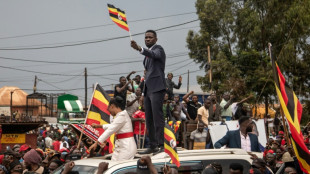
-
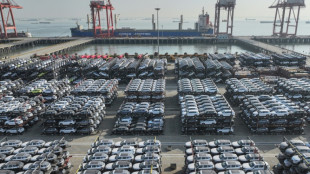 China unveils steady but restrained climate goals
China unveils steady but restrained climate goals
-
Trump 'incredibly impatient' with Russia on Ukraine, VP Vance says
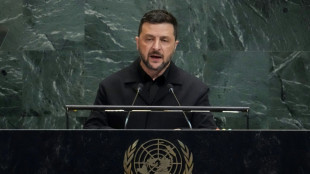
-
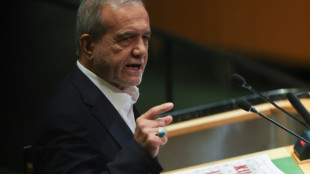 France, US tell Iran still chance to avoid nuclear sanctions
France, US tell Iran still chance to avoid nuclear sanctions
-
Big news: Annual eating contest roars to life in Fat Bear Week

-
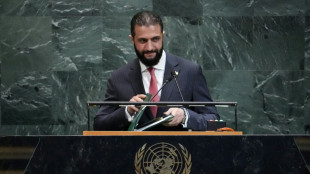 In UN debut, new Syria leader warns on Israel but backs dialogue
In UN debut, new Syria leader warns on Israel but backs dialogue
-
Malawi's ex-president Mutharika returns to power in crushing vote win
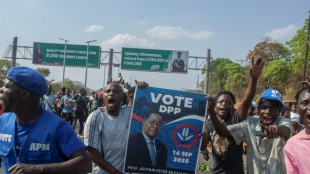
-
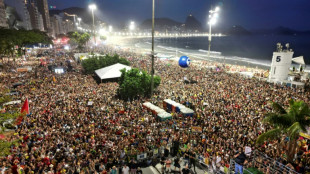 Under-fire Brazil senators scrap immunity bid
Under-fire Brazil senators scrap immunity bid
-
Morikawa calls on US Ryder Cup fans 'to go crazy'
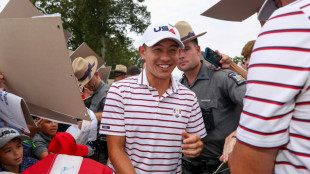
-
 India see off Bangladesh to book Asia Cup final spot
India see off Bangladesh to book Asia Cup final spot
-
Rubio calls for Russia to stop the 'killing' in Ukraine
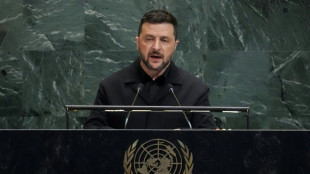
-
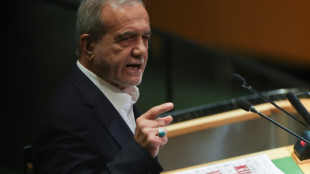 Macron tells Iran president only hours remain to avert nuclear sanctions
Macron tells Iran president only hours remain to avert nuclear sanctions
-
UN humanitarian chief slams impunity in face of Gaza 'horror'
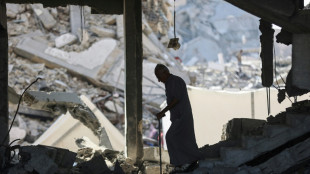
-
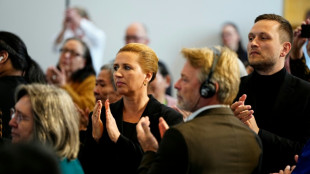 Danish PM apologises to victims of Greenland forced contraception
Danish PM apologises to victims of Greenland forced contraception
-
Planetary health check warns risk of 'destabilising' Earth systems

-
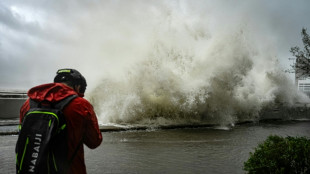 Typhoon Ragasa slams into south China after killing 14 in Taiwan
Typhoon Ragasa slams into south China after killing 14 in Taiwan
-
Monchi exit 'changes nothing' for Emery at Aston Villa
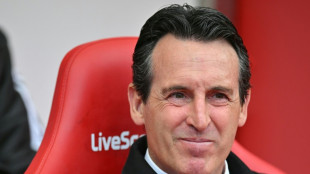
-
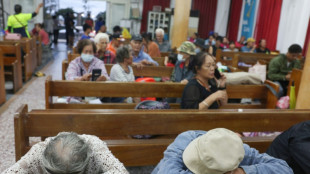 Taiwan lake flood victims spend second night in shelters
Taiwan lake flood victims spend second night in shelters
-
Europe ready for McIlroy taunts from rowdy US Ryder Cup fans

-
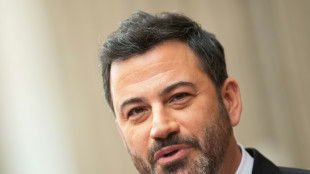 US comedian Kimmel calls Trump threats 'anti-American'
US comedian Kimmel calls Trump threats 'anti-American'
-
Australia win tense cycling mixed relay world title
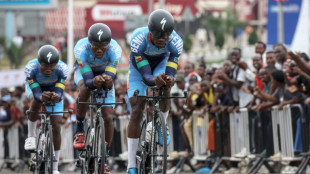
-
 Stokes will be battle-ready for Ashes, says England chief
Stokes will be battle-ready for Ashes, says England chief
-
Iran will never seek nuclear weapons, president tells UN
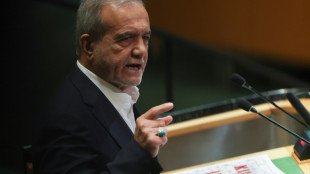
-
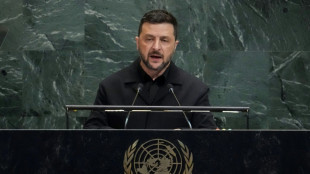 Zelensky says NATO membership not automatic protection, praises Trump after shift
Zelensky says NATO membership not automatic protection, praises Trump after shift
-
Becker regrets winning Wimbledon as a teenager
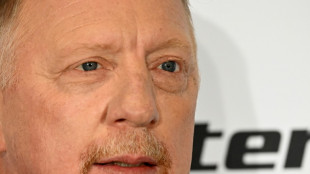
-
 'Mind-readers' Canada use headphones in Women's Rugby World Cup final prep
'Mind-readers' Canada use headphones in Women's Rugby World Cup final prep
-
Rose would welcome Trump on stage if Europe keeps Ryder Cup

-
 AI optimism cheers up markets following Fed rate warning
AI optimism cheers up markets following Fed rate warning
-
France doubles down on threat to build future fighter jet alone
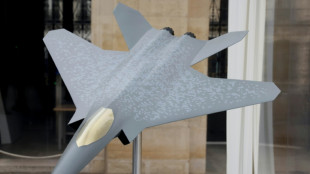
-
 Delay warning issued to fans ahead of Trump's Ryder Cup visit
Delay warning issued to fans ahead of Trump's Ryder Cup visit
-
EU chief backs calls to keep children off social media

-
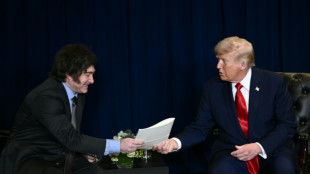 US Treasury says in talks to support Argentina's central bank
US Treasury says in talks to support Argentina's central bank
-
'Everything broken': Chinese residents in typhoon path assess damage
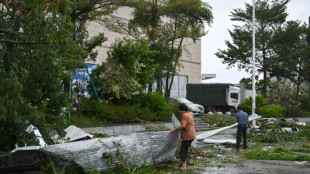
-
 Inside Barcelona's Camp Nou chaos: What is happening and why?
Inside Barcelona's Camp Nou chaos: What is happening and why?
-
UK police arrest man after European airports cyberattack
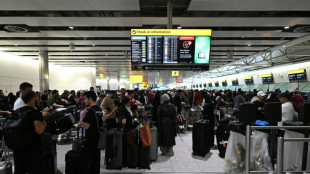
-
 Ballon d'Or disappointment will inspire Yamal: Barca coach Flick
Ballon d'Or disappointment will inspire Yamal: Barca coach Flick
-
French-German duo wins mega offshore wind energy project
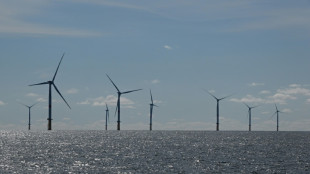
-
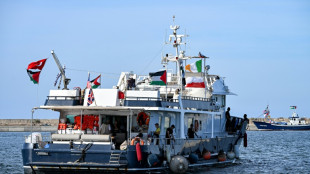 Italy deploys frigate after drone 'attack' on Gaza aid flotilla
Italy deploys frigate after drone 'attack' on Gaza aid flotilla
-
Typhoon Ragasa slams into south China after killing 17 in Taiwan
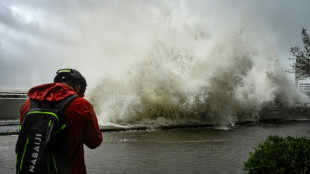
-
 NASA launches mission to study space weather
NASA launches mission to study space weather
-
Stocks torn between Fed rate warning, AI optimism
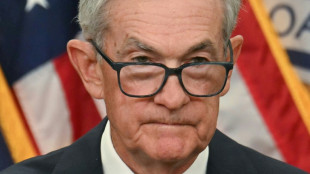
-
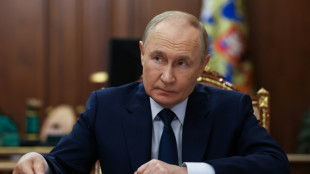 Russia vows to press offensive, rejects idea Ukraine can retake land
Russia vows to press offensive, rejects idea Ukraine can retake land
-
French consumer group seeks Perrier sales ban


France, US tell Iran still chance to avoid nuclear sanctions
French President Emmanuel Macron and a US envoy said Wednesday that Iran still had a last chance to avoid deep UN sanctions if it addresses concerns on its nuclear program.
France, Britain and Germany have set the clock through the UN Security Council to reimpose sweeping sanctions at the end of Saturday on Iran, which they say has not cooperated on the long-running nuclear row.
Macron met Iranian President Masoud Pezeshkian on the sidelines of the UN General Assembly and urged him to reverse a series of steps taken by Tehran following an Israeli and US attack in June.
Iran must allow full access to UN nuclear inspectors, immediately resume nuclear negotiations and offer transparency on highly enriched uranium whose whereabouts have been the subject of speculation, Macron said.
"An agreement remains possible. Only a few hours are left. It's up to Iran to respond to the legitimate conditions we have raised," Macron wrote on X after meeting Pezeshkian.
Steve Witkoff, Trump's real-estate friend and roving envoy who had been negotiating with Iran until Israel attacked, said without further elaboration that he was still in touch with Iran.
Witkoff said that Iran was in a "tough position" ahead of the return of the so-called snapback sanctions.
"I think that we have no desire to hurt them. We have a desire, however, to either realize a permanent solution and negotiate around snapbacks," Witkoff told the Concordia summit on the sidelines of the General Assembly.
"If we can't, then snapbacks will be what they are. They're the right medicine," Witkoff said.
Iranian Foreign Minister Abbas Araghchi met Tuesday with his European counterparts, leading to no clear progress other than an agreement to keep talking.
- Iran denies bomb pursuit -
Ahead of meeting Macron, Pezeshkian insisted before the annual UN gathering that Iran was not at fault.
"I hereby declare once more before this assembly that Iran has never sought and will never seek to build a nuclear bomb," he said.
"The one disturbing peace and stability in the region is Israel, but Iran is the one that gets punished," he said.
Iran has long contended that it is not seeking nuclear weapons, pointing to an edict by Supreme Leader Ayatollah Ali Khamenei, and US intelligence has not concluded that the country has decided to build a nuclear weapon.
But Israel, the United States and European countries have long been skeptical due to the country's advanced nuclear work, believing it could quickly pursue a bomb if it so decided.
The snapback sanctions would restore wide-ranging UN economic measures that had been suspended under a 2015 nuclear deal that was negotiated by former US president Barack Obama.
Trump withdrew from the deal in his first term and imposed major unilateral US sanctions.
Pezeshkian accused the Europeans of bad faith, saying that Iran's lack of cooperation was in response to Trump's withdrawal from the nuclear deal, formally known as the Joint Comprehensive Plan of Action (JCPOA).
"They falsely presented themselves as parties of good standing to the agreement, and they disparaged Iran's sincere efforts as insufficient," Pezeshkian said.
"All of this was in pursuit of nothing less than the destruction of the very JCPOA which they themselves had once held as a foremost achievement."
Standing at the General Assembly rostrum, Pezeshkian showed pictures of people killed in the 12-day Israeli military campaign against Iran in June, which Tehran says killed more than 1,000 people.
The United States joined in the campaign on June 22, striking several of Iran's nuclear facilities.
"Aerial assaults of the Zionist regime and the United States of America against Iran's cities, homes and infrastructure at the very time we were treading the path of diplomatic negotiations constituted a grave betrayal of diplomacy," he said.
T.Ziegler--VB
